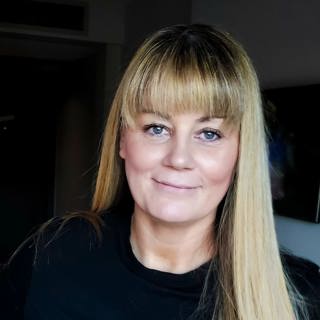Angela's story

Angela was diagnosed with bipolar disorder when she was 19 years old, and also struggles with anxiety. As a See Me volunteer, she has shared her experiences of mental health stigma and discrimination in the media and speaking at events, including one at the Scottish Parliament.
I would have all the time in the world for anybody else to not be okay, but when it's me that’s not okay, I'll just retreat, then I won't come back out until I can be my usual self.
I still feel guilt for having a condition that I can't control. No matter how much self-help stuff I do, no matter how much I'm on medication – the shame and guilt are combined. Even with doing everything I can, I can get unwell, and then people don't understand.
One of the worst things is the feeling that you’re letting people down. I was diagnosed with bipolar disorder when I was 19. In my 20s, I was a singer. I remember driving three hours to get to a venue, and then I just could not get out. I could not get out the car. My anxiety was so high, my mood was low. I’d done amazing just to get the venue, but then I just couldn't get out the car.
What made it worse was I didn't even have the ability to phone the agent to say, ‘I'm sorry. I can't. I can't do this.’ So basically, I just left them without an act. I thought, if this is what my life's going to be like, I can't live. I can't cope with letting people down all the time. I hate being someone that people can’t rely on because of my illness.
People can be very dismissive of your mental illness too. I think people would find it hard to believe some of the things that have been said to me. I’ve heard it all. I've had the whole, ‘What have you got to be depressed about?’ Not thinking that depression could be happening from the inside out, not the outside in. For me, it felt like I was being called a compulsive liar.
I’ve experienced a lot of this in healthcare settings too – where you should be able to speak out and ask for help. That makes you feel ashamed – especially if you’ve had a good spell. It’s like you’re at the bottom of the hill, looking up at the top, thinking, ‘Here we go again.’ And you just have to start climbing.
I think being listened to and heard is a really important part of combatting shame. If the person wants to talk, yes, listen, but listen with sincerity. Somebody could open up to you, and even if you are uncomfortable, be privileged that that person's trusted you enough to talk. Being dismissed, not being heard – that's where a lot of shame and self-stigma comes from.
